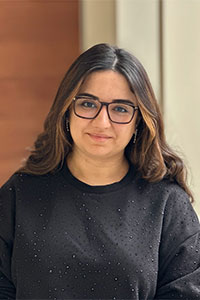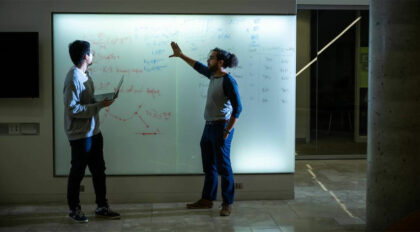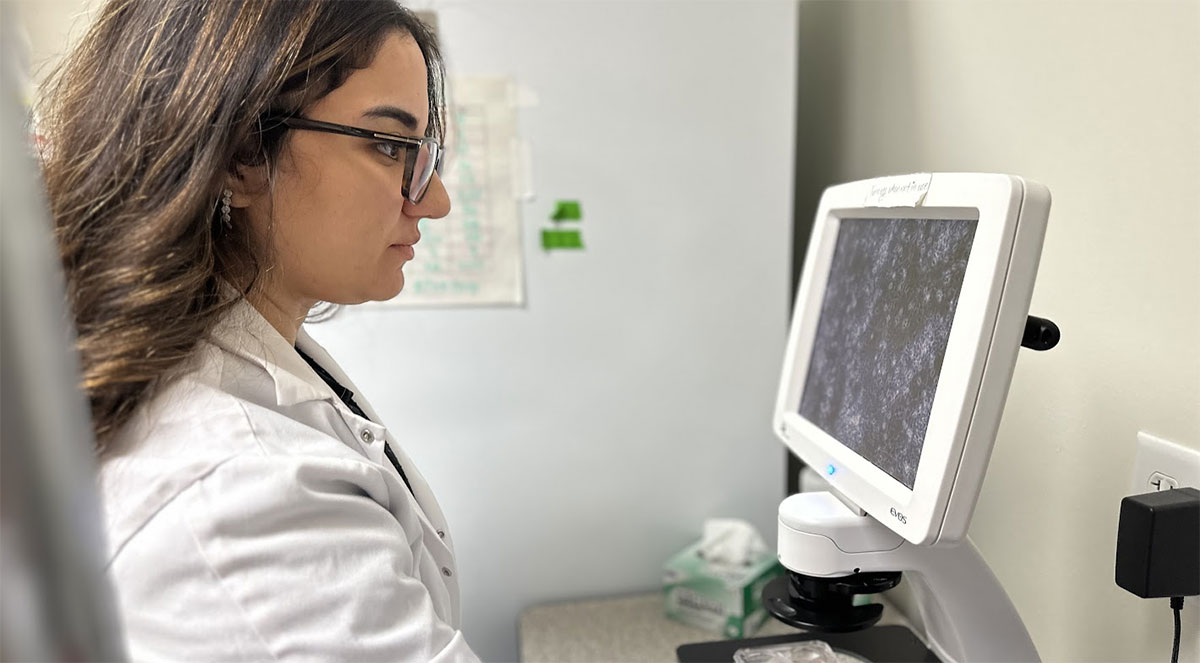Bridging cultures to unlock the mysteries of life
As a young girl in Baku, Azerbaijan, a capital-city metropolis on the shore of the Caspian Sea, Sabina Farhadova’s fascination with science sprouted and eventually led her on an international quest to uncover the hidden mechanisms of life.
“My passion for science began at an early age, driven by my curiosity about how life works at the molecular level,” says Farhadova, the recently named Gulbrandsen Postdoctoral Fellow at the Morgridge Institute for Research.
Because Baku, also known as the “Paris of the East,” is located at the western Asian intersection of cultures, she was able to study Azerbaijani, Turkish, Russian, and English. “I had access to books in multiple languages, which allowed me to explore scientific topics beyond my school curriculum,” she says.
After earning an undergraduate degree in biology at Baku State University, she went on to earn a master’s degree studying molecular genetics and Darwinism – deepening her understanding of genetic diseases – at the Azerbaijan National Academy of Sciences.

During her master’s work, Farhadova joined a small research team which secured a grant to study genetic mutations in beta thalassemia in the Azerbaijani population.
“It gave me my first experience in real-world scientific research,” Farhadova says. “This success, along with my mentor’s encouragement, convinced me that I wanted to pursue a research career in molecular biology and genetics.”
Farhadova was one of just two candidates chosen from Azerbaijan to enter a prestigious doctoral program jointly run by the Azerbaijan National Academy of Sciences and France’s University of Montpelier.
“In the U.S., we often take for granted the opportunities available for education and research,” she says. “Coming from Azerbaijan, I have had to fight for every opportunity in these areas.”
Her fight and persistence paid off.
As a doctoral student, she focused on genomic imprinting and epigenetic regulation, with an emphasis on how imprinted genes contribute to development and disease. Her research used CRISPR-based technologies and stem cell models to uncover new insights into imprinting disorders.
“Each step, whether securing grants, pursuing a PhD in France, or moving to the United States for postdoctoral research, was driven by my curiosity, perseverance, and belief that my work can make a difference,” Farhadova says.
At Morgridge, she will work with investigators Melissa Skala and Darcie Moore to use cutting-edge imaging technologies to answer fundamental questions about neurogenesis – the process by which new neurons are generated in the brain – and stem cell biology.
Morgridge’s Fearless Science approach also resonates with Farhadova, because it fosters a culture of bold, interdisciplinary research that pushes scientific boundaries.
“The emphasis on collaboration, innovation and risk-taking creates an environment in which scientists can explore groundbreaking ideas without the constraints often found in traditional research settings,” she says.
Farhadova plans to eventually parlay her scientific experiences into a career in private-sector biomedical research.
“While I enjoy working in academia, I am drawn to the fast-paced, impact-driven environment of the private sector, where research can quickly lead to real-world applications,” she says.
For prospective doctoral candidates, she offers this advice: “Embrace challenges and actively seek mentorship. Most importantly, enjoy the process of discovery and never be afraid to ask bold questions – that’s where the true innovation happens.”
Farhadova’s plate is full, as she juggles science while settling into Madison with a newborn son, Murad, and her husband Khagani Eynullazada, a PhD student at the Wisconsin Institute for Discovery. She credits her husband and Moore for providing incredible support and guidance as she balances her work and personal lives.
“I rely on structured planning to manage my time efficiently, ensuring that I dedicate quality moments to research, family, and self-improvement,” she says. “The balance is incredibly rewarding, as both my family and work life bring me fulfillment and purpose.”

Rising Sparks: Early Career Stars
Rising Sparks is a monthly profile series exploring the personal inspirations and professional goals of early-career scientists at the Morgridge Institute.
